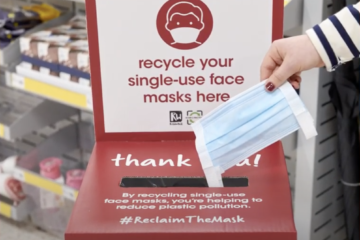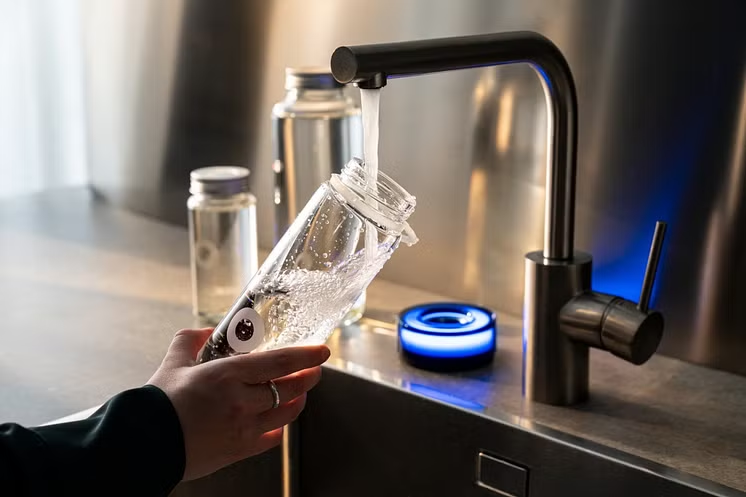According to recent data from NHS England, people with diabetes were found to be more at risk of developing serious complications from the virus than those without the condition. It has also been shown that people with type 2 diabetes are twice as likely to be hospitalised if they contract coronavirus, so it is understandable that those living with the diabetes are feeling especially anxious in the current climate.
It is more important than ever for people living with type 2 diabetes, and for those who have family members living with the condition, to follow their doctor’s advice and do everything they can to keep their blood sugar levels as close to ideal as possible.
 We asked Dr Sarah Brewer, working in association with CuraLin (www.curalife.com) the all-natural supplement that helps balance blood sugar levels, to explain the link between diabetes and risk of serious complications from coronavirus, and also to provide some expert tips to follow for stable blood sugar levels.
We asked Dr Sarah Brewer, working in association with CuraLin (www.curalife.com) the all-natural supplement that helps balance blood sugar levels, to explain the link between diabetes and risk of serious complications from coronavirus, and also to provide some expert tips to follow for stable blood sugar levels.
Why are complications more serious for people with diabetes?
“People with diabetes appear to have a greater risk of serious complications from COVID-19 and, according to studies in China, are twice as likely to require intensive care compared to people without diabetes.[i] The exact reasons are unknown, but is thought to result from higher underlying levels of inflammation in the body which affects immune responses to infections. Having poor glucose control lowers resistance to virus infections and also increases the risk of developing a secondary bacterial pneumonia. Some people with type 2 diabetes are also obese which is another risk factor for severe infections.” [ii]
How important is it to keep your blood sugar as close to the optimum range as possible while there is the possibility of catching coronavirus?
 “Maintaining good control of blood glucose levels is important for anyone with diabetes as this helps to reduce the long-term risk of many diabetes-related complications. When it comes to COVID-19, a Chinese study of over 7,300 people found that while having type 2 diabetes increased the need for medical interventions and intensive care, those whose diabetes was well-controlled have much better outcomes and recovered better than those with poor blood sugar control.[iii]
“Maintaining good control of blood glucose levels is important for anyone with diabetes as this helps to reduce the long-term risk of many diabetes-related complications. When it comes to COVID-19, a Chinese study of over 7,300 people found that while having type 2 diabetes increased the need for medical interventions and intensive care, those whose diabetes was well-controlled have much better outcomes and recovered better than those with poor blood sugar control.[iii]
“The NHS is also setting up online support services to provide evidence-based information and support, aimed at helping people with type 2 diabetes deal with the many physical and mental challenges of having type 2 diabetes.”
 As people are increasingly advised to remain indoors and health services focus on dealing with the most urgent cases, it’s wise to seek support and comfort from online communities. CuraLife have created ‘Winning Type 2 Diabetes Together’ a safe online space of over 8,000 individuals around the world suffering from high or erratic glucose levels and living with type 2 diabetes.
As people are increasingly advised to remain indoors and health services focus on dealing with the most urgent cases, it’s wise to seek support and comfort from online communities. CuraLife have created ‘Winning Type 2 Diabetes Together’ a safe online space of over 8,000 individuals around the world suffering from high or erratic glucose levels and living with type 2 diabetes.
It provides a platform to talk openly about their experiences and help one another with any queries or concerns. If you’re going through something it’s likely someone else will have too! Whether you’re newly diagnosed or have been coping with the condition for years, it’s the ideal place to find support, knowledge, lifestyle tips and recipes. Search ‘Winning Type 2 Diabetes Together’ on Facebook to join.
So, what advice can diabetics follow to help look after themselves during the pandemic?
When staying indoors more, consider supplementing for Vitamin D. Vitamin D is important when you have little sun exposure especially as it plays a role in immunity, take a daily supplement that is designed for your age group.
You can also try an all-natural supplement like CuraLin. CuraLin (RRP £59.00, www.curalife.com) is a specially tailored natural formula that promotes healthy and balanced blood sugar levels and insulin production in those suffering from type 2 diabetes. The nutritional supplement is made from a mixture of ten natural ingredients, which work with the body to help balance the blood sugar profile. The blend of 10 Ayurvedic herbs within CuraLin have a range of beneficial effects on glucose control and metabolism. As a result, users report that their glucose control quickly improves and, in some cases, normalises within 4 weeks. Users also report reduced cravings for sweet food, and experience improved energy, sleep and general quality of life.
It is likely that you will be at home for most of the day. Whether you’re working or not it is so important to keep occupied as boredom can lead to snacking and comfort eating, which can wreak havoc with your levels. It is imperative that you check you have enough medication and request new supplies in plenty of time to avoid any delays.
As we’re unable to go to the gym, you should consider at-home workouts or going outside to exercise. Exercise is essential for maintaining heart and lung health. Walk around the home as much as you can, or sitting exercises can also help. Ideally you should aim for at least 30 minutes on most days, but this can be broken up into 3x 10-minute routines at home too. Take advantage of the less restricted government guidelines and get outside for exercise as much as you can, consider taking long walks or try some HIIT in the park.
In order to boost immunity, make sure you’re eating a healthy diet providing plenty of fruit and veg. It’s also critical that you get sufficient sleep to avoid tiredness which can have a detrimental effect on our immune systems. Keep as active as possible during the day so you’re ready for a quality night’s sleep. Staying in daily contact with friends and relatives via phone, email, text or video calls will help avoid loneliness and depression as well.
For more information on Diabetes Week go to: https://www.diabetes.org.uk
This year’s hashtag is: #TheBigPicture














